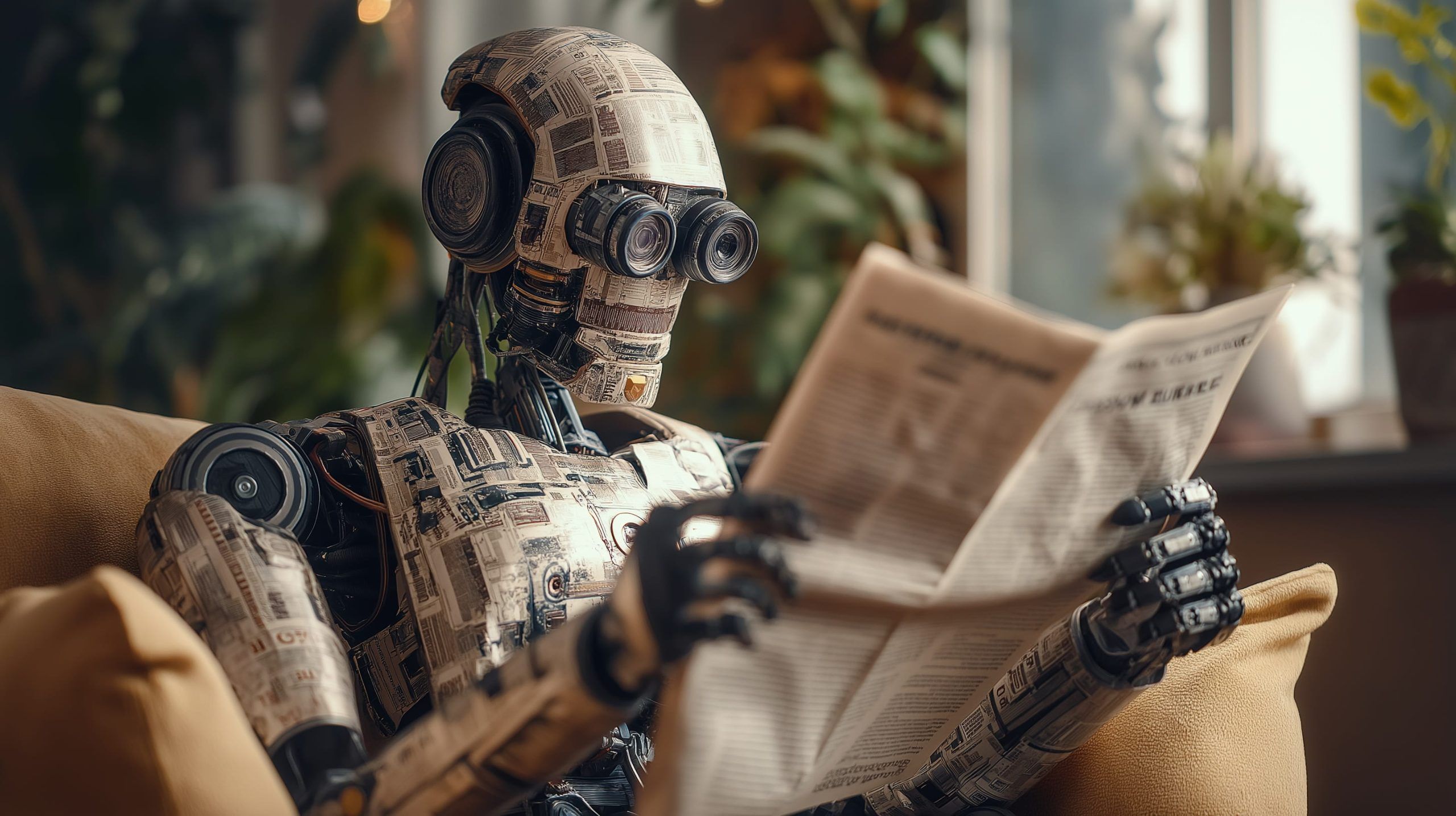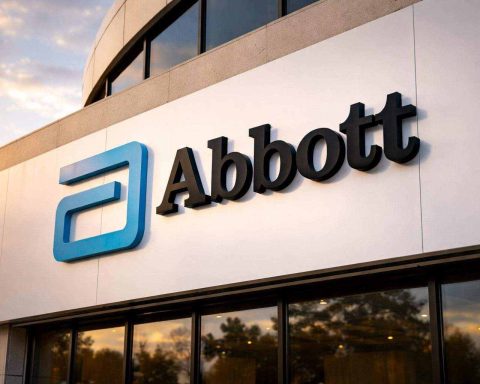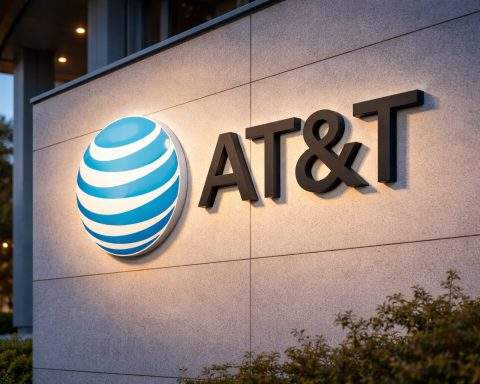- OpenAI rolled out a new ChatGPT “study mode” on July 29, 2025, turning the chatbot into a personal tutor with step-by-step prompts, interactive quizzes, and tailored hints.
- Google DeepMind upgraded Google Search AI Mode on July 29, 2025, introducing Canvas to structure study guides from uploaded notes, with Live AI interactions via Google Lens and a forthcoming desktop “what’s on your screen” overview.
- Skild AI unveiled Skild Brain on July 29, 2025, a general-purpose robotics AI model designed to run on nearly any robot, trained from simulations and human demonstrations with built-in force safety limits.
- Anthropic launched Claude for Financial Services on July 29–30, 2025, its first industry-specific AI assistant for bankers, analysts, and insurers for tasks like portfolio analysis and underwriting.
- Zhipu AI, rebranding as Z.ai, released three new open-source models including GLM-4.5, showcasing coding and reasoning performance at lower cost.
- Reuters reported on July 29, 2025 that Microsoft is in advanced talks to secure access to OpenAI’s latest models regardless of an AGI milestone.
- Bloomberg reported that Anthropic could be valued above $100 billion amid pre-emptive funding interest, as Claude’s annualized revenue rose from $3 billion to $4 billion in the past month.
- Italy’s antitrust authority opened an investigation into Meta on July 30, 2025, over alleged monopoly abuse related to pre-installed Meta AI in WhatsApp since March 2025.
- Google signed the EU AI Code of Practice on July 30, 2025, aiming to align with upcoming European rules while cautioning that data-disclosure requirements could slow innovation; Microsoft is expected to sign and Meta did not join.
- OpenAI and Google DeepMind announced that their AI models solved 5 of 6 IMO problems, earning gold-medal-level scores, with DeepMind’s system named “Deep Think” and built on Gemini.
Tech Titans Unveil Next-Gen AI Tools
OpenAI’s ChatGPT Gets “Study Mode”: OpenAI rolled out a new ChatGPT “study mode” on July 29, aiming to turn the popular chatbot into a personal tutor rather than a homework shortcut edweek.org edweek.org. The feature guides students step-by-step to find answers, with interactive prompts, quizzes, and tailored hints instead of simply spitting out solutions. “Learning requires friction, it takes effort, curiosity, and grappling with ideas,” explained OpenAI’s education lead Leah Belsky during a press briefing edweek.org. The Study Mode is available to all users (13+), and an education-focused version is in the works. Teachers are cautiously optimistic: one high school teacher called it “awesome” for homework help, while experts warn it must genuinely foster deeper learning, not just make cheating easier medium.com edweek.org. OpenAI says it collaborated with educators and cognitive scientists to design the mode and will research its impact on student outcomes 1 .
Google’s Search Gets an AI Makeover: Not to be outdone, Google DeepMind announced a sweeping upgrade to Google’s AI Mode in Search on July 29 techcrunch.com. The experimental AI-enhanced search feature gained a new “Canvas” tool that helps users organize research and study plans in a side panel techcrunch.com. For example, a student can hit “Create Canvas” and let AI structure an exam study guide, refining it with follow-up questions until it fits their needs techcrunch.com. Users will even be able to upload class notes or a syllabus to customize the guide. Google is also introducing Search “Live” integration: by pointing a phone’s camera at an object or text, users can have a back-and-forth conversation with Search’s AI about the live image (powered by Google Lens) techcrunch.com techcrunch.com. “When you go Live with Search, it’s like having an expert on speed dial who can see what you see and talk through tricky concepts in real-time,” said Robby Stein, Google’s VP of Search, in a company blog post techcrunch.com. Additionally, Google’s AI Mode will soon let desktop users ask AI about “what’s on your screen” – from dissecting a complex diagram to analyzing a PDF report – and get an AI-generated overview with the option to dive deeper techcrunch.com techcrunch.com. These updates, rolling out to US users in the Search Labs program, mark Google’s push to make search more interactive and visual. Analysts note it’s a reimagining of search itself, blurring the line between search engine and AI tutor – with implications for online publishers if users no longer click web links at the same rate.
Amazon & SoftBank Back a Robotics Breakthrough: In the startup arena, Skild AI – a two-year-old robotics company backed by Amazon’s Jeff Bezos and Japan’s SoftBank – unveiled a general-purpose AI model for robots on July 29 reuters.com. Dubbed “Skild Brain,” the foundational model is designed to run on nearly any robot, from factory arms to humanoid helpers reuters.com. Demo videos showed Skild-powered robots climbing stairs, regaining balance after a shove, and picking up clutter – feats requiring human-like spatial reasoning and adaptability reuters.com. The model was trained on simulations and human demonstration videos, then continually fine-tuned with data from each robot using it, a strategy CEO Deepak Pathak says tackles the “data scarcity” unique to robotics (there’s no massive internet corpus for teaching robots physical tasks) reuters.com reuters.com. Notably, Skild Brain has built-in safety limits on force to prevent accidents reuters.com. The goal is to give robots a “shared brain” that customers’ robots continuously improve reuters.com. Skild’s launch reflects the broader race to develop versatile AI-driven robots – an area drawing big investments. (Skild raised $300 million in a Series A last year at a $1.5 billion valuation, with backers including Menlo Ventures, Khosla Ventures, Sequoia, and Bezos reuters.com.) If successful, such generalist robot brains could accelerate automation in logistics, manufacturing, and healthcare – even as they raise questions about workforce impacts and safety standards for human-robot interaction.
Anthropic and Others Expand AI Offerings: Meanwhile, Anthropic (the startup behind the Claude chatbot) made a targeted move into finance. The company introduced Claude for Financial Services, its first industry-specific AI assistant tailored for bankers, analysts, and insurers pymnts.com. This custom Claude is designed to help with tasks like portfolio analysis and underwriting, reflecting a trend toward domain-specific AI. (Anthropic’s JP “Pelosi” – head of financial services – noted it’s aimed at “high-trust” industries that demand accuracy pymnts.com.) On the open-source front, China’s Zhipu AI (now branding as Z.ai) released three new open-source models – including GLM-4.5 – touting performance in coding and reasoning tasks at lower cost than Western rivals medium.com medium.com. However, observers caution that Western adoption of Chinese models may be limited by data privacy concerns and censorship of outputs medium.com. From Big Tech to startups around the globe, these two days saw a flurry of AI tool launches and upgrades, all vying to push the state of the art – and stake out market share – in an increasingly crowded field.
Big Money Moves and Power Plays
OpenAI & Microsoft’s Evolving Pact: Behind the scenes, a high-stakes negotiation between OpenAI and its chief backer Microsoft came to light. Reuters reported on July 29 that Microsoft is in advanced talks to secure continued access to OpenAI’s crown-jewel technology – even if OpenAI achieves “artificial general intelligence” in the future reuters.com reuters.com. Under the companies’ current contract, Microsoft could lose certain rights once OpenAI’s AI reaches a hypothetical AGI milestone. The new talks aim to revise that clause so Microsoft can keep using OpenAI’s latest and greatest models regardless reuters.com reuters.com. Negotiators have been meeting regularly and could strike a deal within weeks reuters.com. This renegotiation is tied to OpenAI’s broader restructuring: the startup plans to transition into a public-benefit corporation (a move requiring Microsoft’s sign-off) as part of an anticipated $40 billion funding round led by SoftBank bnnbloomberg.ca. SoftBank has reportedly conditioned half of its $20 billion investment on OpenAI completing that corporate overhaul by year’s end bnnbloomberg.ca. The stakes are enormous for Microsoft – which has poured billions into OpenAI – as its Azure cloud has ridden the ChatGPT wave to boost revenue by ~35% last quarter bnnbloomberg.ca. Analysts note Microsoft still holds leverage (“the company will end up negotiating terms in the interest of its shareholders,” UBS wrote) bnnbloomberg.ca, but rival cloud providers are circling. In fact, OpenAI has quietly added Google Cloud as a supplier and massively expanded an Oracle cloud deal (including plans for 4.5 GW of new data centers) to meet its AI computing needs bnnbloomberg.ca bnnbloomberg.ca. The AI arms race is not just about models – it’s about locking down the infrastructure and partnerships to run them at scale.
Anthropic Eyes $100 Billion Club: OpenAI isn’t the only AI lab attracting mega-money. Anthropic, maker of the Claude chatbot and a key OpenAI rival, was reportedly fielding investment offers valuing it at over $100 billion pymnts.com. According to a Bloomberg scoop, venture investors have approached Anthropic with pre-emptive funding proposals at that sky-high valuation pymnts.com. (For context, Anthropic was valued at ~$61 billion just earlier this year after a major funding round pymnts.com.) The company – which counts Google and Amazon as major backers – isn’t formally fundraising yet, but the interest underscores how hot the top AI startups have become. Amazon, which invested $8 billion in Anthropic in 2023, is even said to be considering upping its stake with a multi-billion-dollar follow-on pymnts.com. The frenzy is driven by surging usage of Anthropic’s Claude model (reportedly, Claude’s annualized revenue jumped from $3 billion to $4 billion in the past month) pymnts.com, as well as strategic jockeying by Big Tech firms to not miss out on the next generative AI leader. In short, investors are betting that a handful of foundation-model providers could dominate the coming AI economy – and they’re willing to pony up record sums to secure a piece of the action.
M&A and Talent Wars: No blockbuster AI acquisitions were announced in this 48-hour window, but talent is arguably the hottest asset being traded. Industry chatter points to an escalating talent war among AI labs – exemplified by Meta’s recent hires of top AI researchers from rivals (with rumored $25–50 million pay packages per researcher) in the weeks prior. While not a specific July 29/30 event, this context looms over all the corporate moves: Companies with the best AI brains win, and they’re paying a premium to poach and retain that brainpower. One striking figure – Meta CEO Mark Zuckerberg – reportedly has a personal “Most Wanted” list of AI experts he’s targeting for his new Superintelligence Labs division. Meta has already spent hundreds of millions on talent and is prepared to spend “hundreds of billions” on AI infrastructure, Zuckerberg said earlier in July reuters.com reuters.com. This heady mix of dealmaking, funding, and talent grabs shows how much is at stake. In the span of two days, we saw maneuvers positioning Microsoft, Google, Amazon, OpenAI, Anthropic, and others in a struggle for AI dominance – a struggle measured in tens of billions of dollars and the careers of a few hundred elite researchers.
Regulators Pump the Brakes on AI
Meta’s WhatsApp AI Under Investigation: On July 30, European regulators reminded Big Tech that they’re watching closely. Italy’s antitrust authority launched an investigation into Meta over allegations of monopoly abuse related to its AI assistant in WhatsApp reuters.com. The watchdog claims Meta pre-installed its “Meta AI” chatbot into WhatsApp without user consent, potentially giving its own AI an unfair advantage and locking users into Meta’s ecosystem reuters.com reuters.com. Meta’s AI assistant – which provides a ChatGPT-like experience within WhatsApp – has been embedded in the app since March 2025 reuters.com. Italian officials say this could violate EU competition rules by steering WhatsApp’s huge user base toward Meta’s AI services at the expense of competitors reuters.com reuters.com. Meta (which was not immediately available for comment) now faces scrutiny over whether it leveraged its dominant messaging platform to gain an edge in the AI assistant market. This comes as Meta aggressively integrates AI across its products – a strategy that, while enhancing features for users, is raising eyebrows among regulators worried about Big Tech bundling power. The Italian probe is one of the first major regulatory challenges to the new wave of consumer AI integrations, and could foreshadow broader EU enforcement once the bloc’s AI Act comes into effect.
Google Signs EU’s AI Pact – With Reservations: Over in Brussels, Google announced it will sign on to the EU’s new “AI Code of Practice,” a voluntary code meant to help companies meet upcoming European AI rules reuters.com. Kent Walker, Google’s President of Global Affairs (and chief legal officer), said in a July 30 blog post that Google will join the code “with the hope that [it] will promote Europeans’ access to secure, first-rate AI tools” reuters.com. However, Google didn’t hide its unease about some EU requirements. Walker cautioned that parts of the EU’s draft AI Act – and by extension the code – could “slow Europe’s development and deployment of AI” by imposing excessive red tape reuters.com. In particular, Google is concerned that mandates to disclose training data (a nod to copyright transparency) or to undergo lengthy approval processes could expose trade secrets and hinder innovation reuters.com. Despite these qualms, Google’s agreement to sign the code is a win for EU regulators seeking industry buy-in. (Microsoft has signaled it will likely sign as well, according to its President Brad Smith reuters.com, while Meta declined to participate, citing legal uncertainty for open-model developers reuters.com.) The EU’s AI Code of Practice is an early, voluntary step ahead of the EU AI Act, a sweeping law still being finalized that would set some of the world’s strictest rules on AI. By signing the code, Google appears to be angling to shape the regulatory conversation – supporting the goals of safety and transparency, but lobbying against rules it sees as overreaching. It’s a delicate dance as tech giants try to avoid a regulatory backlash without stifling their AI ambitions.
Washington’s New AI Game Plan: In the United States, the White House grabbed attention with a major policy blueprint. The Trump Administration (in office since January) released a 28-page “AI Action Plan” outlining its strategy to keep America ahead in AI – and officials spent the week of July 29 detailing its contents. The plan is built around three pillars – Accelerating AI Innovation, Building AI Infrastructure, and International AI Security – with over 90 action items covering everything from R&D to export controls medium.com medium.com. Key proposals include: slashing regulatory hurdles to speed up AI deployments, pumping investment into domestic chip manufacturing and massive AI data centers, establishing AI sandboxes to test new tech, and training an AI workforce natlawreview.com natlawreview.com. One pillar focuses on international strategy – for example, tightening export controls on advanced chips and AI tech to counter China’s influence in AI development natlawreview.com natlawreview.com. President Trump also signed executive orders to fast-track permits for AI infrastructure projects, boost AI exports to allies, and even ban the U.S. government from buying AI systems deemed “politically biased.” natlawreview.com Notably, the administration took a stance on the heated issue of AI training data and copyright: Trump emphasized that forcing AI companies to pay for every piece of copyrighted material used in training is “not do-able,” suggesting the matter be left to courts – a relief for AI firms scraping web data natlawreview.com natlawreview.com. The plan’s rollout drew mixed reactions. Tech industry groups cheered the pro-innovation, light-regulation approach (one Washington Post editorial called it a “good start” toward U.S. AI dominance). But consumer advocates and privacy groups voiced alarm: by rolling back guidelines on bias and misinformation and supercharging AI projects, would the government be ignoring risks to civil liberties? medium.com The plan’s heavy emphasis on outcompeting China also signaled a geopolitical edge that some fear could lead to an “AI arms race” with insufficient ethical safeguards. In sum, the U.S. sent a clear message that it wants to win the global AI race – but the debate over how to do so responsibly is just beginning.
Breakthroughs, Benchmarks, and Rivalries
AI Ties the World’s Top Mathletes: A remarkable research milestone was revealed as both OpenAI and Google DeepMind announced that their AI models achieved human gold-medal scores on this year’s International Math Olympiad (IMO) problems techcrunch.com. For the first time, AI systems performed on par with the best teenage math prodigies on the planet nature.com. According to the companies, each of their models solved 5 out of 6 Olympiad problems, earning scores equivalent to a gold medal (roughly the top 10% of contestants) techcrunch.com. Unlike last year’s attempts, which involved special-purpose theorem-proving systems and human “translations” of problems, both firms succeeded end-to-end in natural language – the AI read the questions in plain English and wrote out full proofs on its own techcrunch.com nature.com. Google DeepMind’s effort, internally called “Deep Think” (built on its Gemini model), was even evaluated by official IMO judges under an agreement, ensuring a rigorous assessment nature.com nature.com. The achievement showcases a leap in AI’s reasoning abilities. “For a long time, I didn’t think we could go that far with LLMs,” admitted DeepMind researcher Thang Luong, noting that their new system can handle multiple chains of thought in parallel – a key to solving hard problems 2 .
However, the math duel quickly morphed into a rivalry saga. OpenAI announced its IMO feat first (on Saturday, July 19), which DeepMind saw as jumping the gun. In a flash, social media lit up with a spat between the AI giants. DeepMind’s CEO Demis Hassabis and his researchers took to Twitter (X) to “slam OpenAI for announcing its gold medal prematurely” – before independent experts could verify the results and before the student winners had their moment techcrunch.com. “We didn’t announce on Friday because we respected the IMO Board’s request that all AI labs share results only after the official results… & the students had rightly received the acclamation they deserved,” Hassabis tweeted pointedly techcrunch.com. He implied OpenAI broke a gentleman’s agreement, accusing the rival of chasing headlines at the expense of sportsmanship. The back-and-forth grew snippy enough that TechCrunch quipped: if you’re going to enter AI in a high school contest, you might as well argue like high schoolers techcrunch.com. OpenAI’s researchers defended their approach, but the episode highlighted the intense one-upmanship in AI: even a scientific benchmark can trigger PR jousting for the crown of “who’s ahead” in the AI race.
Lost in the drama was just how impressive the math milestone truly is. Even outspoken skeptics of AI’s hype were struck by the result. Gary Marcus, a frequent critic of large language models, called the dual achievement “awfully impressive,” noting that “to be able to solve math problems at the level of the top 67 high school students in the world is to have really good math problem-solving chops.” nature.com In other words, AI just matched the world’s brightest teens in a domain that requires not just knowledge but original reasoning – a feat few thought possible so soon. Whether this translates to broader problem-solving capabilities outside competition math remains to be seen, but it’s a powerful proof-of-concept that advanced AI can tackle complex, creative tasks. The incident also underscores a growing theme: AI milestones are increasingly PR battles. Achievements in research are announced with fanfare, and tech leaders aren’t shy about needling each other online – all staking claims to leadership in a fast-moving field.
Other Research Highlights: In academia, there were notable papers and reports coinciding with these days. For example, Nature reported that DeepMind’s AlphaFold protein-modeling system (famous for solving protein folding) is now spawning derivatives in drug discovery, and a new AI-powered genomics tool can read DNA sequences with unprecedented precision – heralding potential medical breakthroughs. Meanwhile, researchers at NC State demonstrated a novel attack that can trick computer vision systems by subtly manipulating inputs, exposing security blind spots even as AI vision gets smarter. These didn’t grab headlines like the corporate news, but they illustrate the double-edged sword of progress: each new capability (in medicine, in vision) comes with new challenges (ethical questions, security risks) that society and scientists will have to address.
Ethical Debates and Public Reactions
Artists and Actors vs. AI Voices: As AI tech surges ahead, human creators are pushing back to protect their livelihoods. On July 30, Reuters spotlighted the plight of voice actors in Europe who fear AI dubbing tools could steal their voices – literally. In France and Germany, dubbing artists who give local language voices to Hollywood stars are rallying under campaigns like “Touche Pas Ma VF” (“Don’t Touch My Voice-Over”) to call for regulations on AI reuters.com reuters.com. “I feel threatened even though my voice hasn’t been replaced by AI yet,” said Boris Rehlinger, a prominent French voice actor (the French voice of Ben Affleck and Puss in Boots) reuters.com reuters.com. He and colleagues point out that quality dubbing requires a whole team – actors, translators, dialogue coaches, sound engineers – working in harmony, something soulless algorithms can’t easily replicate reuters.com. Yet studios are already experimenting with AI-generated voices to quickly dub content into dozens of languages. Some AI firms claim these tools will assist rather than replace humans, making dubbing more efficient while still relying on actors for realism reuters.com reuters.com. But the voice actors aren’t convinced; they are lobbying EU lawmakers for strict rules (under the upcoming AI Act) to require consent and compensation if an actor’s voice or likeness is used by AI. This battle echoes the broader fight in creative industries: the same week, Hollywood’s actors and writers continued strikes that, in part, demand limits on AI simulations of their performances. The public is increasingly aware of these issues – social media is filled with discussions on deepfake voices and the future of human creativity. The upshot is a growing consensus that AI’s advance must come with new ethical guardrails. Otherwise, as one dubbing artist put it bluntly, “we risk losing an art form – and jobs – to a cheap imitation.”
Musk v. OpenAI – Clash of Visions: In another controversy, one of AI’s most famous champions-turned-critics, Elon Musk, made waves by suing OpenAI, the very company he helped co-found. News of Musk’s legal action spread during this period, adding to the drama in the AI sphere reuters.com. Musk’s lawsuit (filed earlier in July) accuses OpenAI of straying from its original mission – which was to develop safe AI for the benefit of humanity on a non-profit basis – and instead chasing profit and power reuters.com. Since Musk departed OpenAI in 2018, the firm transformed from a non-profit lab into a capped-profit startup and forged its lucrative partnership with Microsoft. Musk has repeatedly voiced concerns that AI is advancing too irresponsibly, and he’s reportedly backing a new rival project (xAI) to build “truth-seeking” AI. His court challenge against OpenAI, however, takes the feud up a notch, airing allegations that OpenAI’s current direction violates the principles the founders once agreed on. OpenAI and CEO Sam Altman have downplayed Musk’s criticism in the past, suggesting Musk is simply upset at being out of the loop. But the lawsuit brings real legal scrutiny to questions of AI ethics and corporate structure. It also reflects a split in the tech community: one camp (exemplified by Altman, Zuckerberg, etc.) racing to deploy AI widely and commercially, and another camp (exemplified by Musk and some researchers) urging caution, transparency, and even pauses in development. As this plays out, public opinion is divided – many are excited by AI’s possibilities, yet a growing number are uneasy about who controls these powerful systems and whether profit motives are trumping safety. The Musk vs. OpenAI saga captures that cultural debate, essentially asking: Is Big Tech building AI in a way that serves humanity, or just their bottom line? It’s a question likely to surface again in Congressional hearings and on conference stages in the months ahead.
Society Grapples with AI’s Impact: These two days also saw ongoing conversations about AI’s impact on everyday life. On social media, educators debated how tools like ChatGPT’s Study Mode might affect learning habits – some parents praised the guided approach for helping kids learn independently, while others worried it could make students over-reliant on AI. Workers in various sectors – from customer service reps to graphic designers – shared stories of how AI is starting to augment (or in some cases threaten) their jobs. And tech ethicists called attention to a New York Times investigation (published July 29) into bias in AI recruiting tools, reigniting discussions about algorithmic discrimination. While not all these discussions tie to a single news headline, they form a backdrop to the hard news. The public is essentially in a state of AI whiplash: amazed at the new capabilities unveiled seemingly every week, yet anxious about the consequences. The phrase “AI Ethics” trended on Twitter on July 30 after a viral thread about an AI-generated video that fooled millions of viewers – a reminder that with great power (to generate content) comes great responsibility to discern truth from fakery.
Even within tech circles, voices urged a pause for reflection. Yoshua Bengio, an AI pioneer, gave a speech on July 30 emphasizing the need for global cooperation on AI safety, likening the situation to the early days of nuclear research. And the IEEE hosted a panel that day where experts discussed setting international standards for AI transparency. These weren’t flashy announcements, but they signal an important undercurrent: as AI leaps forward in capability, calls to “put ethics front and center” are getting louder.
The Bottom Line: A Snapshot of an AI Revolution
In just 48 hours, the AI landscape saw major leaps forward and major pushback. Tech titans like OpenAI and Google rolled out tools that could transform how we study, search, and work – blurring the line between human and machine intelligence in daily tasks. Billion-dollar deals and negotiations underscored that the race to dominate AI is as much about cloud compute and capital as clever algorithms. At the same time, governments and watchdogs on both sides of the Atlantic flexed their muscles, determined not to let innovation run ahead of oversight. And across social strata – from voice actors in Paris to CEOs in Silicon Valley – people are waking up to the profound stakes of this AI moment. As venture capitalist Marc Andreessen quipped recently, “Software is eating the world, and AI is eating software.” The news from July 29–30, 2025, shows that feast is in full swing. But it’s clear that society is not content to be merely a spectator (or the main course). Whether through new laws, lawsuits, or collective action, humans are asserting a say in how this AI revolution unfolds.
In the coming days and weeks, keep an eye on how these threads develop: Will Microsoft cement its alliance with OpenAI or will the startup diversify away? How will Meta balance its all-in AI bet with rising regulatory heat? Can Google’s AI search makeover win users without upending the web’s economics? And will there be a backlash to AI in classrooms if tools like ChatGPT Study Mode aren’t implemented thoughtfully? This week’s whirlwind of AI news is a reminder that the future is arriving faster than we think, and every sector – from education to entertainment to employment – will need to adapt. As one expert put it, we’re witnessing “a complete reshuffling of the deck” in tech medium.com. The cards are flying, and the world is watching, nervously and eagerly, to see how they land.
Sources: Key announcements and information were drawn from corporate releases and credible reports, including TechCrunch (on Google’s AI Mode updates) techcrunch.com techcrunch.com, Reuters (on OpenAI/Microsoft talks, Google and EU regulations, Meta’s investigation, and the Skild AI launch) reuters.com reuters.com reuters.com reuters.com, Education Week (on ChatGPT’s Study Mode) edweek.org edweek.org, and Nature (on the AI Math Olympiad achievement) nature.com nature.com. Comments and quotes from industry figures and experts were reported by those outlets or shared on social media (e.g. Demis Hassabis via Twitter techcrunch.com). This comprehensive roundup provides a snapshot of the AI world on July 29–30, 2025 – two days packed with progress, promises, and provocations in equal measure.






